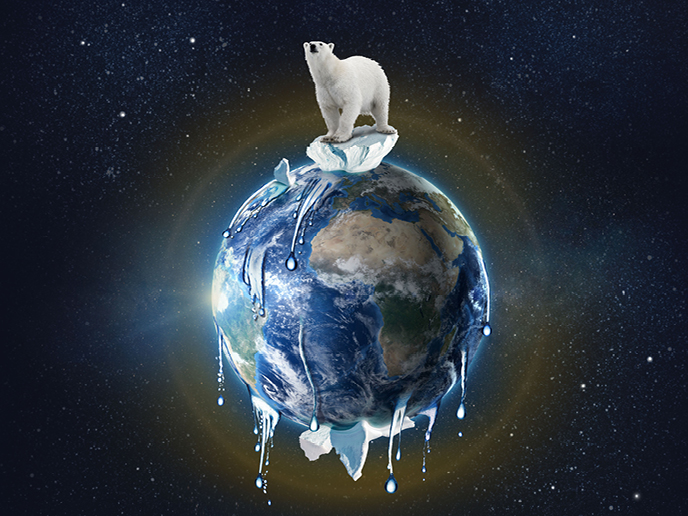Understanding impacts of climate change on Earth’s vulnerable polar regions
Few of us will set foot inside the Arctic or Antarctic circles in our lifetime, but what happens there will certainly have an impact on our own lives. The climate at Earth’s poles is warming faster than the rest of the globe, leading to retreating sea ice and glaciers, thinning ice sheets, thawing permafrost and extreme weather events, driving habitat loss and economic and social degradation for the Arctic’s inhabitants. Disruptions to climatic and geochemical cycles may lead to the crossing of tipping points with cascading adverse effects on humans, marine organisms and the Earth system, and with high environmental, societal and economic impacts. At the same time, an ice-free Arctic is fuelling a race to secure emerging resources, including untapped mineral and petrochemical reserves, increased tourism and new sea routes of significant commercial and geopolitical value. Understanding these changes is essential if we are to mitigate the most deleterious impacts of climate change and make use of its resources in an equitable and sustainable manner.
A multifaceted and multidisciplinary approach
This Pack presents a diverse portfolio of projects supported by the Horizon research programme, which examine the key role of the ocean and the polar regions in climate regulation, and the wider interconnection between ocean, cryosphere, biodiversity and climate. Investigation of key processes in the polar regions is crucial for the development of more accurate and precise climate models, the identification of climate and ecological tipping points, and a deeper understanding of the coupling between drivers and responses in the ocean-climate-cryosphere system. The projects highlighted here bring together researchers from Earth system science, oceanography, fisheries science, ecology, social sciences and economics, as well as ethics professionals, technology providers, local communities and regulators. Their findings contribute to policy, legal and regulatory pathway recommendations for the implementation of the European Green Deal and its climate and biodiversity objectives, the integrated EU Arctic policy and make significant contributions to international assessments such as the Intergovernmental Panel on Climate Change and Intergovernmental Science-Policy Platform on Biodiversity and Ecosystem Services. Climate change and its consequences – the degradation of polar and ocean health and the loss of biodiversity – can only be dealt with by taking a holistic systems approach. The knowledge generated by the multidisciplinary approach shown here allows policymakers and stakeholders to intervene more effectively with mitigating measures, and incentivises the transition toward a just and sustainable development for the planet and people. Understanding the polar regions requires a wealth of perspectives. Placing the needs of the Arctic’s inhabitants at the centre of their research, ArcticHubs, CHARTER and JUSTNORTH have developed models, solutions and policymaking guidance in co-creation with residents. Projects FACE-IT, SO-CHIC and Beyond EPICA aimed to better understand the dynamics linking ocean, atmosphere, ice and climate, supporting the development of improved climate models, while PROTECT has examined the threat of sea level rise. Supporting enhanced research in the region, EU-PolarNet 2, CAPARDUS and Arctic PASSION have developed new frameworks for knowledge sharing, best practices and data access, while TiPACCs, ECOTIP and COMFORT have explored the risk of environmental tipping points, and the dramatic cascading impacts they could have if exceeded.



